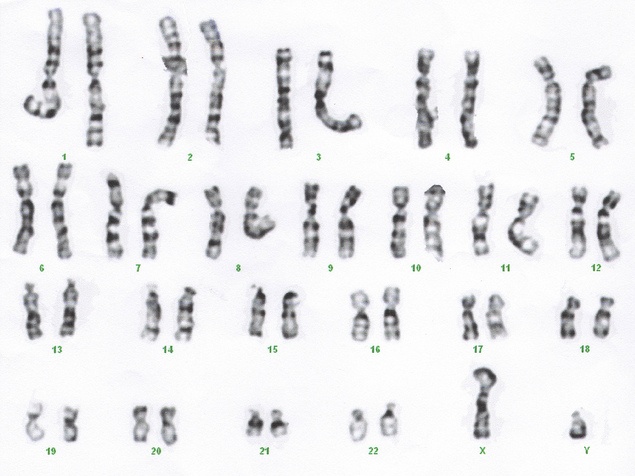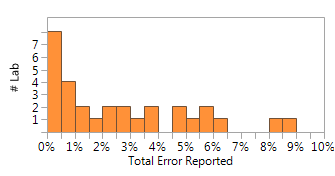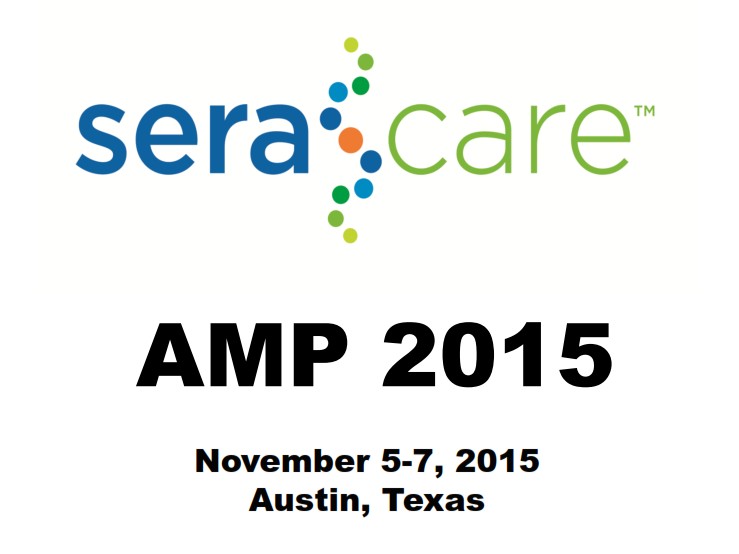Choose your Article Focus | NGS | Molecular & Serology
Highlights from the ESHG and ESHRE 2020 Virtual Conferences
Category: Reproductive Health, PGT, Women's health, NIPT, Non-invasive Prenatal Testing, NGS, Preimplantation genetic testing
Posted by
Agnes Caruso,PhD on Aug 20, 2020 12:00:00 AM
The plans for this year’s NIPT and PGT conferences, like many others, were quickly derailed by the COVID-19 pandemic. The ESHG and ESHRE Annual Meetings were moved to virtual space and even though the format was a new experience, the science did not disappoint. Here we will share some of the highlights from the sessions.
0 Comments Click here to read/write comments
Supporting High-Quality Testing for Women’s Health
Category: Reproductive Health, HIV, NIPT, Non-invasive Prenatal Testing, Breast Cancer
Posted by
Agnes Caruso,PhD on May 15, 2020 12:00:00 AM
This week is National Women’s Health week1 and is dedicated to women to focus on their health and take steps to improve it. As Women’s Health week traditionally starts on Mother’s Day, we tend to focus primarily on Reproductive Health but it is important to look at the complete picture as some women encounter various conditions and treatments prior to starting a family. Women’s health encompasses things like fertility, pregnancy, infections, cancer, but also many underlying health conditions such as hypertension, diabetes, cardiovascular or respiratory conditions. Many of women’s health problems can be diagnosed by using advanced testing methods. As the technology develops and becomes more complex, ensuring the best performance of the tests is even more critical. With better testing, it is possible to improve outcomes for women around the world.
0 Comments Click here to read/write comments
Do COVID-19 infections affect NIPT?
Category: COVID-19, NIPT, Non-invasive Prenatal Testing, NGS, SARS-CoV-2
Posted by
Prof. Joris Vermeesch, PhD on Mar 26, 2020 12:00:00 AM
We would like to present a guest blog from Prof. Joris Vermeesch, Ph.D. This blog originally posted on the Noninvasive Prenatal Testing Online Resource Page on the 17th March summarizes our current understanding of any possible interference of SARS-CoV-2 infection on the outcomes of NIPT testing.
0 Comments Click here to read/write comments
Evolution of non-invasive prenatal testing (NIPT)
Category: New Reference Material, trisomy, Reproductive Health, NIPT, Non-invasive Prenatal Testing, NGS, #Quality, reference materials
Posted by
Agnes Caruso,PhD on Feb 5, 2020 12:00:00 AM
Prenatal screening for aneuploidy has changed dramatically since the 1970s. Non-invasive methods developed in the 1980s and 1990s, combined measurements of maternal serum analytes and ultrasonography. The problem with those methods was not just a high false-negative rate of 12% to 23%, a high positive rate of 5% and a poor sensitivity, ranging from 50% to 95% 1. Uncertain results frequently led to invasive procedures such as amniocentesis or chorionic villi sampling to perform karyotyping on fetal samples. Both of those procedures carry a risk of miscarriage.
0 Comments Click here to read/write comments
What is Non-Invasive Prenatal Testing (NIPT)?
Category: New Reference Material, trisomy, Reproductive Health, NIPT, #Quality, reference materials
Posted by
SeraCare Team on Jan 20, 2020 12:00:00 AM
Fetal aneuploidy affects about 9 in 1,000 live births. The definition of aneuploidy is an abnormal number of chromosomes ; with 23 pairs of chromosomes in humans, 46 is the normal number, while aneuploidy individuals will have 45 or 47. In trisomy, there is one additional chromosome, typically chr21, 18 or 13 (it is not a coincidence that these are the smallest chromosomes in humans). Historically, the invasive methods amniocentesis and chorionic villus sampling (CVS) were used with risk to the pregnancy, with about a 1% chance of miscarriage due to the procedure. Non-invasive methods based upon ultrasound and serum biomarkers are useful screening tests, but were of limited reliability as they were indirect measures of chromosomal abnormalities1. Photograph courtesy of Flickr user Can H.
0 Comments Click here to read/write comments
What lessons for liquid biopsy have been learned from fetal aneuploidy testing?
Category: liquid biopsy, NIPT, ctDNA
Posted by
Russell Garlick, PhD on Sep 30, 2016 12:00:00 AM
Non-invasive prenatal screening (NIPS) is currently offered in over 80 countries, covering over 80 million annual births, with an estimated volume of over one million screening tests performed annually. First offered in 2011, there has been rapid adoption of these genomic tests in the marketplace.
0 Comments Click here to read/write comments
The current state of non-invasive prenatal testing
Category: NIPT
Posted by
Yves Konigshofer, PhD on Dec 9, 2015 12:00:00 AM
Sometimes a single remark can effectively summarize a very complex problem. While the November 12, 2015 FDA Public Workshop on “Standard Based Approach to Analytical Performance Evaluation of Next Generation Sequencing In Vitro Diagnostic Tests” focused primarily on tests that look for germline and somatic variants, a comment made by Jared Maguire – Counsyl’s Director of Computational Biology – about 1 hour 14 minutes into the workshop explained a lot about the current state of non-invasive prenatal testing (NIPT) and what patients, physicians and insurers are experiencing; more on that later.
0 Comments Click here to read/write comments
Video Interview: Developing Aneuploidy Reference Materials
Category: SeraSeq, clinical genomics, NIPT, reference materials
Posted by
Dale Yuzuki on Nov 24, 2015 12:00:00 AM
0 Comments Click here to read/write comments
What is Non-Invasive Prenatal Testing (NIPT)?
Category: NIPT
Posted by
Dale Yuzuki on Nov 17, 2015 12:00:00 AM
Fetal aneuploidy affects about 9 in 1,000 live births. The definition of aneuploidy is an abnormal number of chromosomes ; with 23 pairs of chromosomes in humans, 46 is the normal number, while aneuploidy individuals will have 45 or 47. In trisomy, there is one additional chromosome, typically chr21, 18 or 13 (it is not a coincidence that these are the smallest chromosomes in humans). Historically, the invasive methods amniocentesis and chorionic villus sampling (CVS) were used with risk to the pregnancy, with about a 1% chance of miscarriage due to the procedure. Non-invasive methods based upon ultrasound and serum biomarkers are useful screening tests, but were of limited reliability as they were indirect measures of chromosomal abnormalities1.Photograph courtesy of Flickr user Can H.
0 Comments Click here to read/write comments
The Association for Molecular Pathology (AMP) was founded 'to provide structure and leadership to the emerging field of molecular diagnostics', and publishes the Journal of Molecular Diagnostics.
0 Comments Click here to read/write comments











